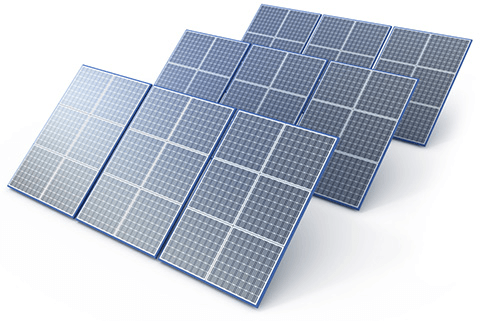- Top Solar Companies
- Savings Calculator
- Solar News
- How Solar Energy Works
- Get a Quote
Call during office hours:
9:00 AM - 5:00 PM PST
Call during office hours:
9:00 AM - 5:00 PM PST
AVERAGE ARIZONA ELECTRIC BILL:
$128.40/mo See how much you can save with solar

Estimated Savings with Solar
Daily Generation:
Monthly Generation:
Monthly Usage:
Daily Savings:
Start Saving Today
Arizona ranks sixth in the U.S. for average monthly electricity bills at $128.40, compared to the national average of $111.67. This gives residents considerable potential to save on their electricity costs by investing in solar power. The cost of solar in Arizona can range from $2.85 – $3.95 per watt, with an average of $3.47.
Solar systems range in size from 4 kW to 20 kW, which means a total cost ranging from $15,801 – $57,066 before any tax incentives or rebates. That is a broad range, but keep in mind that the national average is around a 6 kW system. Taking that average into account, the cost for a 6 kW system would be approximately $20,796. Depending on your home size, energy use, and utility company, you may be closer to the Arizona average of 8 kW, which would cost around $26,032. Remember that this is the cost before deducting any federal or state rebates and incentives you may be eligible for, and your exact cost will depend on your family’s energy needs. And even though it may be a large investment upfront, your payback period could be as short as 11 years.


Arizona Solar Power Incentives and Rebates
Arizona offers residents a state tax credit of 25 percent of the total system cost but only up to $1,000. This amount can add up though, when you take into account other rebates and incentives. Arizona also gives its residents the fantastic benefit of a property tax exemption for any increased value to your home after installing a solar system. Unfortunately, the state’s sales tax exemption was discontinued in 2016.
Federal Tax Credit
All homeowners in the U.S. who either purchase a solar power system outright or finance it with a loan are eligible for the 30 percent federal tax credit through 2019. Keep in mind that after 2019, this credit will be reduced to 26 percent, and then down to 22 percent after 2020. This federal tax credit is currently slated to be discontinued entirely after 2021 unless the federal government renews it.
Local Utility Incentives
Arizona had quite a few local solar rebate programs in the past, but many of them are no longer active because many utility companies have met or almost met the quotas for solar power generation. There are a few still available in more rural co-op areas, which doesn’t cover most Arizona residents. It’s best to confirm with your local utility company to see if they offer incentives in your area.
Excess Energy Rebates
Arizona ended its net metering policy in 2016. The Arizona Corporation Commission (ACC) then gave utility companies the power to determine their own rates, which the companies often make difficult to understand. Since there is no government standard, utility companies can choose whether or not to offer any kind of rebate, how much of a rebate customers are eligible for, and for how long. Make sure to request quotes from multiple solar installer companies who can help you understand the options from your utility company.
Sunrun is the largest solar company in the U.S. dedicated to residential solar, serving over 100,000 customers since 2007.
The company offers flexible payment options, including a lease with 20 percent savings. You can feel confident working with Sunrun as shown through its A+ reviews from both the Better Business Bureau and Angie’s List.

Vivint was already a respected home security and automation company when it created its solar offshoot in 2011.
Vivint Solar has since become the second-largest residential solar provider in the U.S. with approximately one million systems installed. The company can also help you save 20 to 30 percent on your electricity bill with its leasing options.

Since 1985, SunPower has been a vanguard in solar, leading the industry in innovative methods, products, and patents.
The company offers unique photovoltaic cells that produce 60 percent more energy than most other panels on the marketing, resulting in homeowners getting more bang for their buck.
Solar Legislation in Arizona
Arizona is an excellent location for solar energy because it ranks number two in the U.S. for peak sun hours. However, the state has an average rating when it comes to solar policies to help harness all that solar potential. Arizona’s Renewable Portfolio Standard (RPS) gets a ‘C’ grade, placing it in the middle of the pack as 25th in the nation. The legislature set a required target for utilities to acquire 15 percent of the state’s energy from renewable sources by 2025. But this requirement was established years ago, and other states are already catching up or setting more aggressive goals. Arizona does rank higher specifically for solar carve-out in its RPS, with 2.25 percent by 2025. That may sound like a small percentage, but compare that to the 33 states that don’t have any solar carve-out at all.
We mentioned earlier that the Arizona state government has been relaxing regulations and incentives around solar and renewable energy since 2016, partially due to pressure from utility companies. In 2018, the Governor signed a law that reduced the fine for any utility company who does not comply with energy requirements created by the Arizona Corporation Commission (ACC). Although this means fewer incentives passed on to consumers, an investment in solar power can still pay off to offset your electricity costs.
Arizona produces enough solar to power 553,000 homes.
The price of solar has decreased in Arizona 47 percent over the last 5 years.
Arizona has invested $11.2 billion in solar as of 2018.
Arizona obtains 6.52 percent of its electricity from solar power.
Resources
Learn more about solar power legislation, solar tax credits, and more with the help of these resources.
Arizona Corporation Commission
Find detailed information about utility recommendations and regulations.
Arizona State Legislature
Learn about how upcoming bills and new laws can affect your solar savings.
Arizona Office of Grants and Federal Resources
Read more about how the State Energy Program (SEP) works with the federal government to build clean energy.
DSIRE Incentives Database
Learn about Arizona solar power incentives that benefit specific zip codes.
U.S. Energy Information Administration
Explore energy trends in the U.S. and how solar and renewable resources can power the nation more efficiently.
Sources
https://smartasset.com/mortgage/the-cost-of-living-in-arizona
2019 Guide to Arizona Home Solar Incentives, Rebates, and Tax Credits
https://www.energysage.com/solar-panels/az/
https://www.solarreviews.com/solar-panels/solar-panel-cost/cost-of-solar-panels-in-arizona
https://www.seia.org/state-solar-policy/arizona-solar

